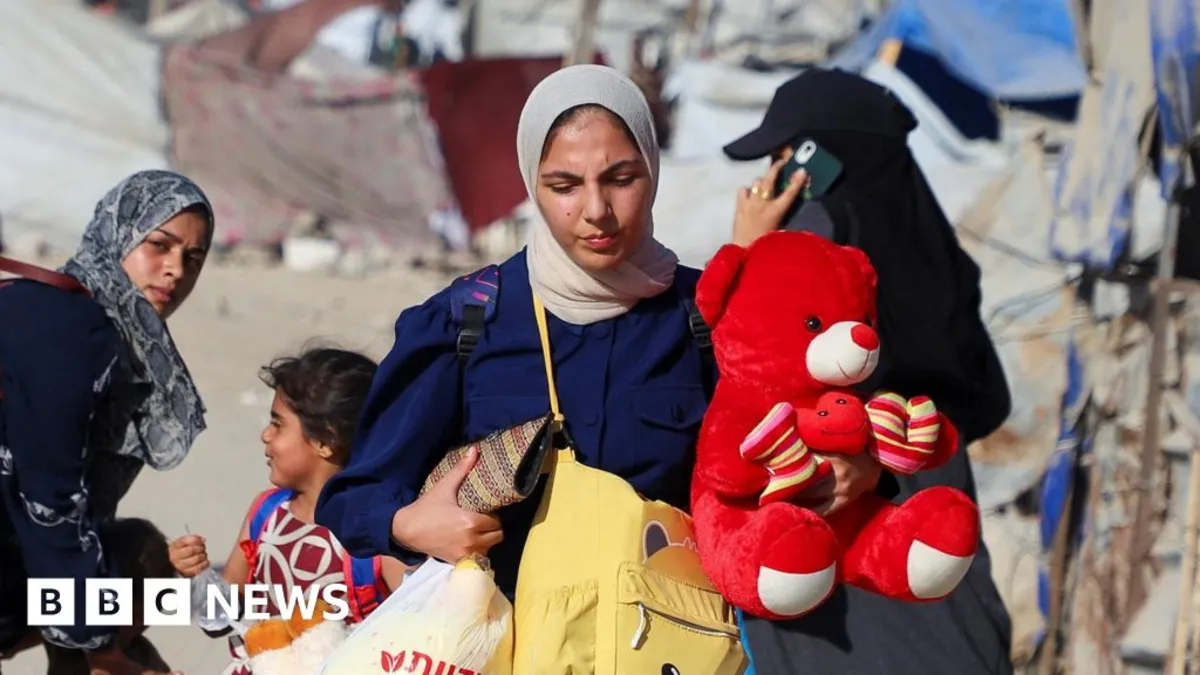
France has officially recognized a Palestinian state, joining a growing list of nations taking this significant step. During his address at the United Nations in New York, President Emmanuel Macron emphasized that the time for peace has arrived and asserted that no justification exists for the ongoing conflict in Gaza.
On the same day, US President Donald Trump is set to speak at the UN General Assembly, alongside leaders from key regional countries like Jordan and Qatar. Notably absent from a recent summit focusing on a two-state solution were the United States, as well as fellow G7 members Germany and Italy. Countries such as Belgium, Luxembourg, Malta, Andorra, and San Marino are also preparing to recognize a Palestinian state, following announcements from the UK, Canada, Australia, and Portugal just days earlier.
As the humanitarian crisis in Gaza escalates, international pressure on Israel is intensifying, particularly regarding its military actions and settlement expansion in the West Bank. In response to France's recognition of Palestine, Israeli officials argued that such actions would reward Hamas for its attack on southern Israel on October 7, 2023, which resulted in approximately 1,200 deaths and the taking of 251 hostages. Since then, reports from Gaza's Hamas-run health ministry indicate that over 65,000 Palestinians have died due to Israeli military actions.
President Macron reiterated the urgent need to end the war and secure the release of Israeli hostages held by Hamas. He cautioned against the dangers of protracted conflicts, asserting that justice must ultimately prevail over force. Macron criticized the international community for its failure to establish a just and lasting peace in the Middle East and stressed the necessity of preserving the potential for a two-state solution that allows both Israel and Palestine to coexist peacefully and securely.
During the UN proceedings, Saudi Arabia's Foreign Minister Faisal bin Farhan Al Saud echoed these sentiments, stating that a two-state solution is essential for achieving sustainable peace in the region. Additionally, European Commission President Ursula von der Leyen announced the EU's intention to establish a new financial mechanism aimed at aiding Gaza's reconstruction efforts. She emphasized the need for collective action, proposing the formation of a Palestine Donor Group.
Despite being unable to attend the UN General Assembly in person due to visa restrictions imposed by the US, Palestinian President Mahmoud Abbas addressed the assembly via videolink. He called for a permanent ceasefire and stated that Hamas should not take part in governing Gaza, urging the group to relinquish its weapons to the Palestinian Authority. Abbas condemned the October 7 attack and delivered a message to Israelis, emphasizing that "Our future and yours depends on peace. Enough violence and war."
The collective calls for peace and recognition of Palestinian statehood highlight a pivotal moment in the ongoing Israeli-Palestinian conflict. As the international community grapples with the humanitarian crisis in Gaza, the emphasis on a diplomatic resolution and the establishment of a two-state solution becomes increasingly vital for ensuring lasting peace in the region.